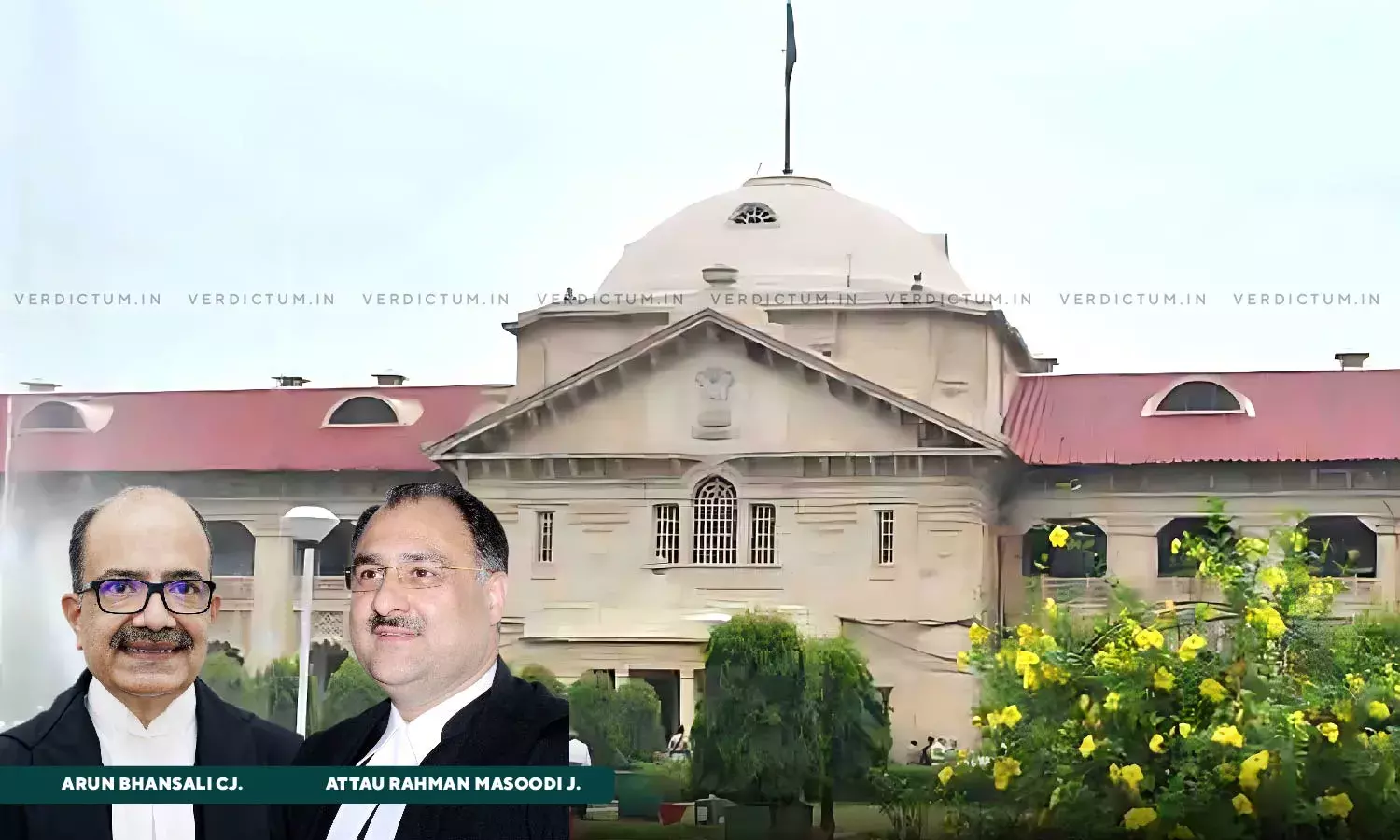Allahabad HC Upholds Service Of Uttar Pradesh Officer Who Claimed To Be A Schedule Tribe During His Appointment 30 Years Back

The Allahabad High Court upheld the service of Uttar Pradesh officer belonging to ‘Meena’ community, who claimed himself as Schedule Tribe during his appointment, 30 years back.
The Court held thus after he was alleged to have wrongly taken the benefit of his belonging to Scheduled Tribe as “Meena” is not considered ST community in Uttar Pradesh.
The bench of Chief Justice Arun Bhansali and Justice Attau Rahman Masoodi observed, “It appears that at the relevant time, when the appointment was accorded to the respondent, the issue as to whether a person belonging to Scheduled Tribes of other State was entitled to seek benefit of reservation in another State was not settled.”
“…in Sunil Kumar vs. Life Insurance Corporation of India & others (supra), a Division Bench of this Court held that if a person, belonging to Scheduled Tribe of other State, seeks employment on the basis of advertisement in another State, he cannot be denied the benefit of reservation.” Court observed.
However, the position of law has since been crystallized by judgment of Hon’ble Supreme Court in Ranjana Kumari vs. State of Uttrakhand and others: (2019) 15 SCC 664, according to the Court.
The Petitioner was aggrieved by the order of the State which suggested that the appointment of the Petitioner was contrary to the Government Orders and hence, is cancelled as the ‘Meena’ community is not notified as a Tribe in the State of U.P.
Petitioner approached the High Court with the Writ Petition where a single bench after relying on the decision of the division bench in Writ Petition No. 22271(C) of 2000 (Sunil Kumar Vs. Life Insurance Corporation of India and others) concluded that the petitioner could have sought employment based on advertisement issued and the reservation could not be denied to him.
The Court further observed that the respondent had indicated the fact of his being belonging to ‘Meena’ Community and the same was very much within the knowledge of the Appointing Authority when he was selected, accorded appointment, and in due course, got two promotions and it was not the case of the State that any fraud or forgery was committed by him for getting the employment. Consequently, the Writ petition was allowed and the impugned order of the state was set aside.
Hence, the state approached the High Court under this special appeal against the decision of the single bench.
As per the Counsel for the Petitioner, the respondent did not fall within the notified Scheduled Tribes of State of Uttar Pradesh, he was not eligible to get an appointment and therefore, the order was rightly passed when the said fact came to the notice.
Counsel for the Respondent, Advocate Sharad Kumar Srivastava submitted that the respondent, at the time of seeking appointment, had disclosed his status as belonging to ‘Meena’ Community and had produced a certificate in that regard.
He further argued that there was no suppression of information and the State Authorities, themselves, finding him eligible and on standing in merit, accorded appointment. He further submitted that the respondent has served the State for 30 long years with dedication and was also accorded two promotions.
He submitted that now he has attained the age of superannuation and therefore, for no fault on his part, he cannot be punished and the State respondents cannot seek to reverse the alleged mistake, which was committed 30 years back.
The Court stated that the issue before this Court is whether the State after 30 years is justified in putting an end to the appointment on the ground that he was initially ineligible because of his caste.
The Court relied on the Supreme Court decision in Md. Zamil Ahmed Vs. State of Bihar and observed, “ it was a conscious decision taken by the State for giving appointment and therefore, there was no justification on the part of the State to wake up after lapse of 15 years and terminate the services on the ground of qualification.”
The Court further relied on the decision in Dr. Shakuntala Mishra National Rehabilitation University Thru. Its Registrar and quoted, “In absence of any fraud or misrepresentation having been committed by the writ petitioner/private respondent, the selection cannot be cancelled after long period of seven years.”
Therefore, in the light of the above judgments, the Court noted that the respondent worked for 30 years and had an unblemished career, and hence, the alleged ineligibility, also in a case where the legal position at the relevant time was uncertain, cannot be sustained.
Accordingly, the Court dismissed the appeal.
Cause Title: State of U.P. v. Chhintar Mal Meena (Neutral Citation: 2024:AHC-LKO:20205-DB)
Appearance:
Adv. Sharad Kumar Srivastava, Adv. Shobhit Mohan Shukla
Next Story

